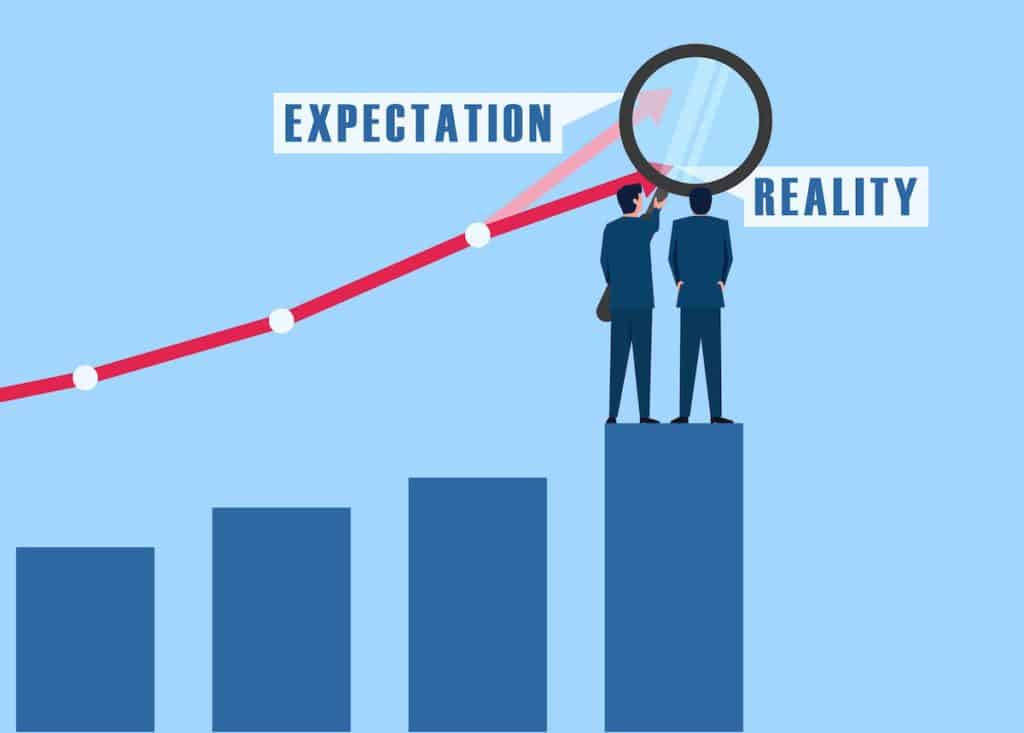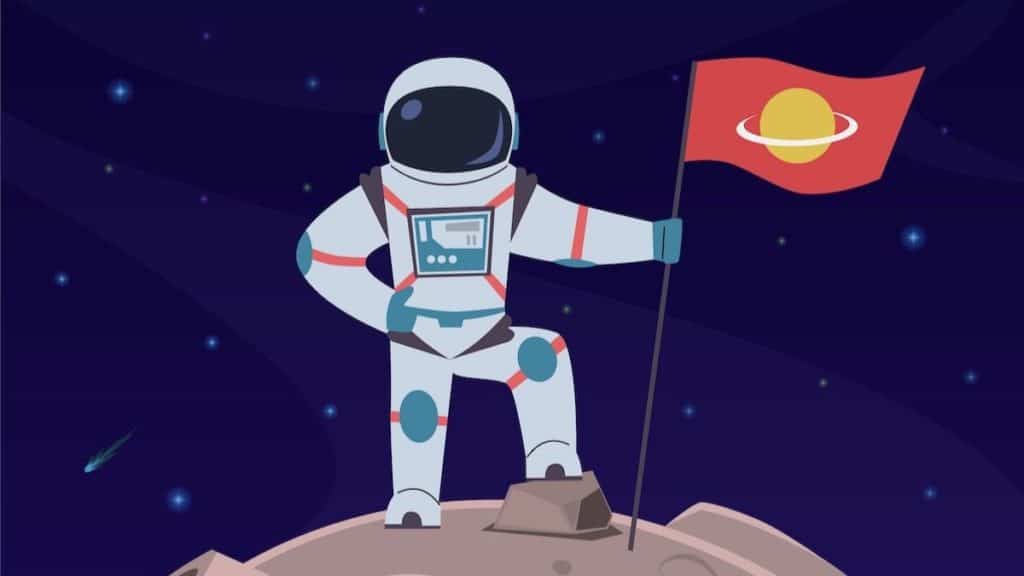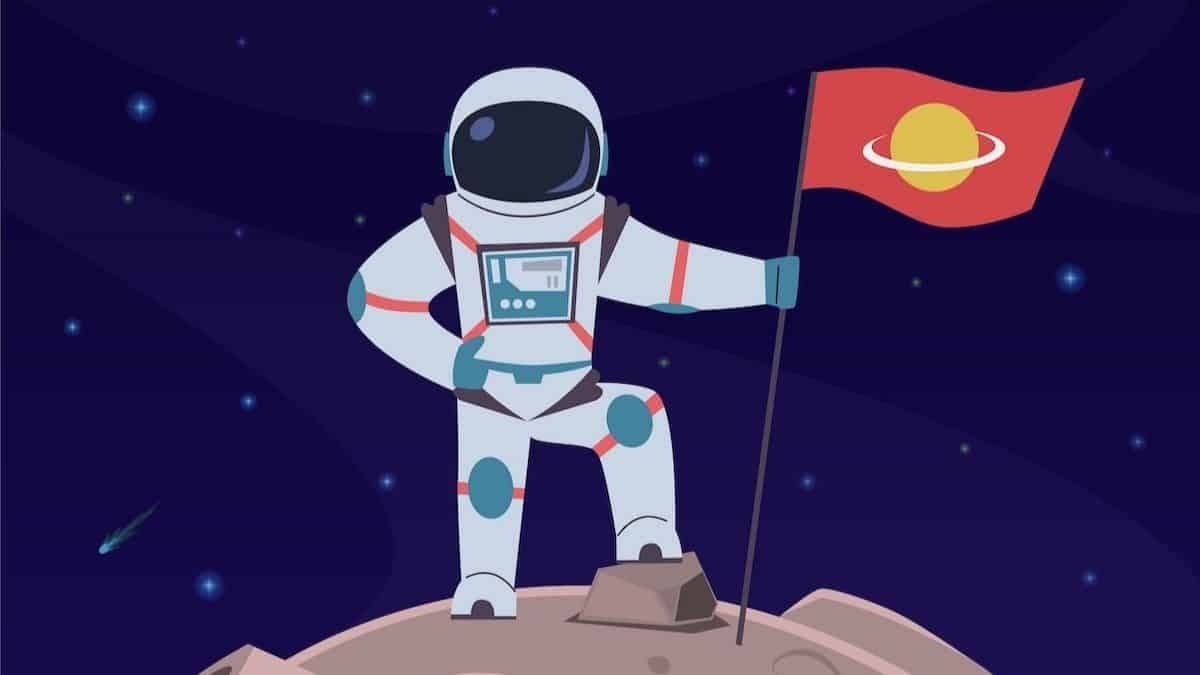Adam the Friendly Sasquatch has a condition called Retinitis Pigmentosa, which began to slowly rob him of his vision in college.
“It felt like a ticking time bomb waiting to crush me. But instead of being a victim of circumstances I did something about it.”
He made a plan.
He surrounded himself with supportive friends and family.
And he worked his butt off to retire early.
In today’s guest post, he talks about how you can overcome adversity to turn it on its head.
Like the famous song quote “What doesn’t kill you makes you stronger.” Let’s dig in!
“Success is not final; failure is not fatal; it is the courage to continue that counts.”
~ Winston Churchill
Table of Contents (Jump Links)
- Introduction
- What Is Adversity?
- Perspective
- Goal Setting
- You’re Not Beaten Until You Give Up
- Victim Mentality
Introduction
“That which does not kill us, makes us stronger.”
~ Friedrich Nietzsche
It’s a common phrase that many of us have heard.
It comes from the 19th century German philosopher, Friedrich Nietzsche. It’s a nice reminder that resilience and persistence often pay off in the face of adversity.
What Is Adversity?

Before we go too deep, let’s make sure we are on the same page.
What is adversity anyways? From dictionary.com:
adversity– a state or instance of serious or continued difficulty or misfortune
That’s a pretty broad statement. Let’s break it down a little further into two types of adversity.
- Things we can control
- Things we cannot control
There are things we can control.
These types of troubles might be the environment we choose, the types of food and drink we consume, and other choices we make.
Sometimes adversity is short-lived, like getting a speeding ticket. Other times, it takes longer to resolve, such as paying off your student loans.
Regardless, it is within our control to face these challenges head on. We can pay off the speeding ticket or put a plan in place to become debt free.
Then there are things we cannot control.
- Where we were born
- If our family had money
- The color of our skin
- How able-bodied we are
Life isn’t fair, but learning to accept the things we cannot control is a must. This skill allows us to focus on the things we can control. This will be a huge asset to you.
For example, I’m blind. There are things that I can’t (or at least shouldn’t) do.
This includes driving a car or being a professional football player. But I’ve learned to accept these things and move past them.
Instead of driving, I plan my errands with a neighbor or have things delivered to my home.
Instead of trying to be a professional quarterback, I’ve had some success with powerlifting. I can’t change my blindness, but I can make the best of all that I do have.
By recognizing that these things are outside of my control and accepting that, I’m able to spend more time on the things I can do something about. I can focus on moving toward my goals in life.
Perspective

The world is always bombarding us with the latest happenings of Elon Musk, celebrities, and famous athletes.
It’s easy to lose perspective of what’s realistic. These people are exceptionally gifted in one particular skill and may have had some extraordinary luck along their journey.
They represent one in a million or even one in a billion odds. These aren’t reasonable yardsticks to measure yourself by. Also, we only see the success stories.
There are hundreds, if not thousands, of lives that ended in ruin for every Will Smith or Elon Musk in this world.
We also don’t see the years and years of blood, sweat, and tears they put in before they became the “overnight success” we see from the outside.
“Comparison is the thief of joy.”
~ Teddy Roosevelt
Somebody will always have it better than you do in some way.
You’ll have it better than many other people do in other aspects.
Instead of focusing on what you do not have, look at the many ways you are gifted and talented. Find ways to leverage those skills into furthering you toward your goals.
When you’re feeling like life is stacked against you and nothing is going your way, I recommend the following daily practice.
- Meditate for 15 minutes each morning. I don’t mean you have to get in touch with your inner Buddha (although that’s cool too), but clear your mind and really think through the day ahead.
Some things you might try to identify are:
- What are my goals for today?
- Are these goals my priorities or someone else’s?
- How does this fit into my 1 or 5 year plan?
- Do I have control over this?
The simple act of thinking through these will give you clarity on what needs to be done and what is a distraction.
- Write down three things you are grateful for. When life is
- overwhelming, it’s easy to overlook the many things that are actually good in your life. When you become better at recognizing the good things, you become better at recognizing opportunity when it comes your way. You’ll be more likely to act on your lucky break. Many people get sucked so deep into their own negativity they wouldn’t see a million dollar opportunity if it landed in their lap.
My gratitude list today is:
- I have a good computer. (not a big deal until you’ve had one that doesn’t work)
- I have my health. (something I work on daily)
- I was able to enjoy a walk outside. (It’s sunny, so let’s make the most of it!)
It seems simple, but it’s critical to appreciate what’s going well.
Not only does it help you appreciate your life, but you’ll see that good things do happen to you every day. Therefore, good things can and will happen to you as you move forward.
An optimistic attitude will carry you much further than a critical one.
Goal Setting
When faced with adversity, you must first identify if it is something in your control or not.
Once this has been established, you’ll need to set some goals for overcoming this challenge. There are three options when presented with a challenge.
- Do nothing. (Inaction is the best course of action sometimes.)
- Attack the issue directly. (Directly work on something in your control.)
- Work around it. (Find a way to sidestep or work around an issue not inside your control.)
Do Nothing
This option is a bit counterintuitive, so let me explain.
I like to run my life on a series of five year plans. I do this because it helps me stay focused on moving in the direction I want to end up.
The first thing I do when I encounter an obstacle is try to determine if it deserves my energy.
For example, let’s say you get into a minor accident. Some jerk was texting and driving and rear ended you at a stoplight. He apologizes, you get your car fixed with his insurance, and the sore neck you have gets better.
But your friend tells you that his lawyer was able to get him a $15K settlement for “injuries.”
You’re pretty frustrated that you had to go through the hassle of car repairs and a sore neck. 15 grand sounds pretty good! Your friend explains that it took 2-3 years to get the settlement and the lawyer took $5K of the settlement, but he’s pretty excited about the $10K he got to keep.
Should you pursue this? You were wronged. Shouldn’t you be compensated? I’d argue no. 2-3 years of dealing with court, lawyers, and worrying about if you’ll be paid is a pretty lousy investment of your time and energy. Furthermore, it doesn’t fit into your five year plan of finding a better job so you can make 20% more per year.
Instead you should focus on what is holding you back from getting that better job. Thank your friend for being concerned, and focus on the next steps for that job.
- Do you need more education or training?
- Have you reached out to recruiters?
- Do you know people at a company you’re interested in?
Pursuing these paths with the time you have will get you out of the dead end job you’re frustrated with and into a better situation permanently.
Attack the Issue Directly
For issues you can control, it’s best to attack them directly.
Let’s use the same student loan example since it’s a common issue. You were young and needed some money to finish a degree. You took out $28K in student loans.
Sticking to the five year scheme I talked about earlier, you might set the goal of paying this debt off in five years or less.A great goal!
However, you currently don’t have much left over at the end of every month and this seems overwhelming.
Step 1: Break it down into smaller chunks.
$28K works out to be $5,600 per year in principle you need to pay down. Still a lot of money, but manageable. In fact, this is around $467 a month- about what many people pay for a monthly car payment.
How might you come up with an additional $467 per month? There are many ways to do this:
- Reduce costs elsewhere. For example, get a less expensive car or a roommate.
- Ask for a raise or overtime at work. Might not work, but worth a shot!
- Find a second job. I actually know someone who paid off his student loans in one year by delivering pizza. Sure it wasn’t glamorous, but instead of letting it hang over his head for 10 years he worked 4-5 hours Friday through Sunday and was able to knock it out. I’d say that’s well worth a year of weekends.
Find a Workaround
Sometimes you can’t avoid a situation, and sometimes you can’t change it directly. This is when you need to find a workaround.
For this example, I’m going to use myself. I’m blind, and therefore, I can’t drive.
Most people can’t imagine how they would handle this. Clearly, it’s something I can’t change.
Until Tesla gets fully self-driving cars figured out, getting behind the wheel is not only impossible, but trust me- you wouldn’t want me to try!
So how have I handled this situation? Well, I found workarounds. There are two types of situations I’ve identified where you need a car. I’ve figured out workarounds for each.
- You need to get something. This could be as simple as groceries, paper for your printer, dog food, whatever. For these situations, I simply plan ahead and order what I need through online services such as Amazon, grocery delivery services like Instacart, or directly from the merchant. I even do this for building materials from Home Depot. (It’s easier to just have their delivery truck drop it off.)
- You need to be somewhere. Let’s say I want to go to the airport, visit a friend across town, or get my hair cut (hard to have that delivered). In these situations, I just Uber or go with a family member when they are going.
This might sound inconvenient or frustrating for some people, but I’ve found it actually saves me time and money.
For example, I don’t have to pay for a car, insurance, or gas. Also, I always get to ride in the carpool lane when I go somewhere.
For many things like dish soap or toilet paper, it just shows up on my doorstep, and I don’t have to waste time getting it.
The daily gratitude I spoke of earlier may seem silly to some, but it helps you see the positives of a situation like this one.
The Obstacle Is The Way by Ryan Holiday is a great book to help you work through these three types of obstacles.
I highly recommend it to anyone who feels like they have a long road ahead of them. You can find one of my favorite quotes in this book.
“What Stands in the way becomes the way.”
~ Marcus Aurelius
You’re Not Beaten Until You Give Up

Persistence is a very powerful tool in life.
Persistence doesn’t mean doing the same thing every day expecting different results. No… that’s insanity!
Persistence is consistently working toward an important goal, experiencing setbacks, and instead of giving up, trying a new approach.
A great example of persistence is NASA trying to put a man on the moon. They had all kinds of problems!
They blew rockets up and lost control of some. The Russians beat them to space, and they had many more technical challenges. With each setback, they learned new things, improved on their designs, and tried again.
This whole time people said it was impossible and a waste of money.
Then astronauts were killed in some of these accidents, and people called for an end of the programs. People also pointed out there were problems here on Earth that should be dealt with using all of that money instead of a silly goal of sending man to the moon.
NASA ignored these distractions and diligently and systematically kept working, failing, learning, and getting better.
We all know how this ends. They eventually did make it to the moon!
To top it all off, there were many unexpected benefits that we still enjoy from the space programs.
From new high tech materials, better understanding of rocketry, and orbital science leading to developments such as GPS, satellite communications, and even Velcro.
You can implement this mindset in your own life by looking at the adversities you face and acknowledging that yes, they will be difficult to overcome.
Yes, it may be harder for you than someone else who has a different skillset or better resources at their disposal.
Yes, you might fail the first time you try.
But understanding that you’ll never succeed without starting is the first step.
The next is not giving up until you achieve your goals.
Victim Mentality
I want to wrap this article up by talking about victim mentality.
There are people in this world who have decided they are the victims in everything. This isn’t to be dismissive and say that bad stuff doesn’t happen to people. Because shit happens and sometimes life isn’t fair!
But how we respond to misfortune is everything.
Try to step past the negative things in your life by first accepting that it’s where you currently are.
Seek to better your situation by putting together a plan and incrementally working toward your goals.
I have a great article on how to set and reach ambitious goals despite the chaos in your life.
“Life is what we make it.”
~ Eleanor Roosevelt
If you enjoyed this guest post by Adam the Friendly Sasquatch, make sure to check out more great articles over at BlindLuckProject.com.
Frequent topics are early retirement, beating the odds, and general philosophy to live a full and fulfilling life.
You can also find him over on Twitter @Blind__Luck.


There’s a lot to explore here and just goes to show how personal growth in whatever area we’re focusing on takes time and effort. Thanks for sharing!